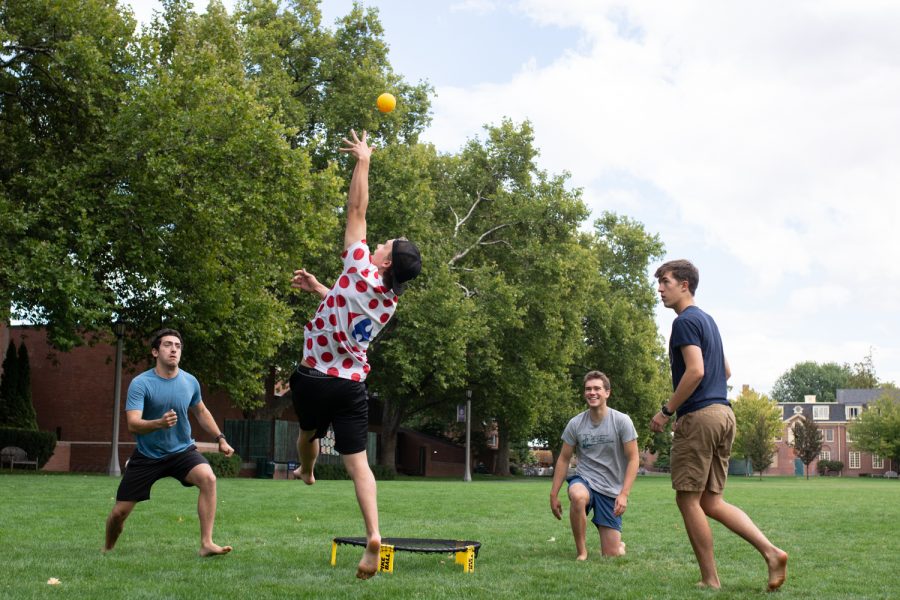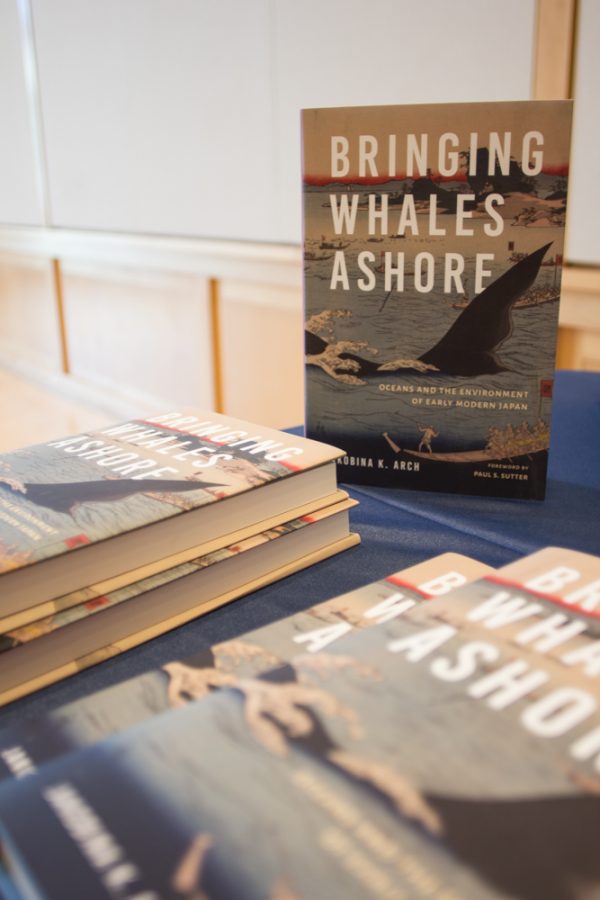I’m about a quarter into my summer study abroad program here in Japan, and the whole experience continues to be a mixed bag. The week started out with our first “small test” (we don’t call them quizzes because in Japanese, the word kuizu usually refers to quiz shows on television). I had studied hard all weekend, and was rewarded with a fairly good score. Heartened by this accomplishment, the first half of the week went pretty well. On Monday afternoon the PII group went to Hokuto workshop to make Japanese sweets, a thoroughly delightful project. We made three different sweets from a sugary paste, shaping them to resemble flowers and fruits: a hydrangea blossom, a green plum and an iris. I shared mine later with Ai-san.
On Tuesday afternoon the professors held an orientation for this weekend’s much-anticipated field trip to the Noto Peninsula. We will stay in a famously gorgeous ryoukan (traditional Japanese inn) and tour various famous spots in the area, including Myoujoji Temple and Wajima, the site of the famous morning market where traditional craftsmen sell their wares. I’m especially excited to visit an onsen, or Japanese hot spring, and relax in the hot water! I could use a break and some rest and relaxation, but I’m a little worried that my roommates in the ryoukan will want to party it up instead. This morning, one of the sensei mentioned that a lot of the students get sick after the busy weekend trip to the Noto Peninsula. I already feel as though I’ve caught little Ha-chan’s cold, so I’m crossing my fingers and hoping that my illness doesn’t get worse!

After the orientation, a group of students and I watched Tampopo, a very entertaining movie that I highly recommend, although some parts of it are pretty bizarre. The movie tells the story of an aspiring ramen noodle chef who seeks to better her establishment with the help of two truckers, but apart from the main plot the movie also includes short vignettes expressing the importance and beauty of food. I was astonished to see an incredibly young Ken Watanabe and youthful Tsutomu Yamazaki (the head mortician in the amazing Departures) playing the roles of the truckers!

On Wednesday afternoon we visited Kanazawa University, where we were each partnered with a Japanese student for lunch conversation. I was absolutely exhausted; I am finally adjusting to the time difference and have found that I can no longer get up early and keep running all day on no caffeine. My student partner, Minako, was very sweet and we made pleasant conversation throughout our time together, but I felt that I didn’t engage her as much as I would have had I not been so tired. Particularly since we had a test scheduled for the next day, I was pretty eager for the Kanazawa University visit to end so that I could return to the Rifare building and study. Despite the mounting anxiety over my test, I did have fun playing kendama (a kind of ball-and-cup game) with the Kanazawa Univeristy students and some elementary students who had come along to show us how to play with the traditional Japanese toy. However, the Kanazawa Univeristy visit ran about half an hour over its scheduled duration, so by the time we returned to Rifare it was already 5:30 p.m.
I stayed up very late studying, disappointed that I couldn’t play with Re-chan and Ha-chan. Frustratingly, these “small tests” cause an enormous amount of stress with the unrealistic expectations they place on us students. In addition to grammar, the test covers kanji, the aforementioned Chinese characters nonsensically inserted into the Japanese written alphabet. Since we don’t know which 10 or so kanji the sensei will select for the test, we have to review (and in my case, learn and memorize) the various readings and stroke order of around 50 kanji compounds per chapter. It’s difficult almost to the point of absurdity. After a few hours of mind-numbing writing practice, I went downstairs around 11:30 to take a shower and surprised Ai-san, who thought I had already gone to bed. “You’re still studying? That’s pretty rough, isn’t it?” she asked sympathetically.
This morning I awoke to find that Ai-san had placed a box of sweets outside the door to my room with “Ganbatte!” written on it. A commonly used word of encouragement, ganbatte usually translates as “Do your best!” or “Please persevere!” in English. Touched by this gesture, I walked to school feeling slightly less stressed.
As it transpires, today marked the end of my short-lived “winning streak” in Japanese class. I almost certainly did not do well on the test, as during the class period following the exam Makino-sensei approached me to point out some instructions that I had accidentally neglected to follow. I also found out that in addition to studying for the exam, we had been assigned a short grammar exercise that I had completely forgotten about. Later in the afternoon, I realized that on the test I had mistakenly reversed the order of several kanji compounds, for example, writing “ç†æ–™” instead of “料熔 and “ä¾›å” instead of “åä¾›.” This is an error I often make in my classes at Whitman, but it somehow seems so much more embarrassing here in Japan, when I’m surrounded by more advanced students. During class I found myself questioning what I was doing here in Kanazawa, and I became filled with self-doubt. I even started to feel a little sick to my stomach, I was so down. Japanese is one of my absolute favorite subjects at Whitman, and I hope to base my future career on the interpretation and translation of the Japanese language, so it’s difficult to face the fact that I’m truly struggling in this program. I’m really trying to look on the bright side by telling myself, “Hey, you came to Kanazawa to have fun and your Japanese is going to improve no matter what, so just take it easy,” but as an incredibly determined and ambitious student, the worry that I’ll receive poor marks nags at me.
I was able to take out some of my frustration and disappointment on a lump of clay in the Hokuto workshop, where a group of students went to make tea bowls this afternoon. After pummeling the clay and succeeding in shaping it into a form more or less resembling the vessels we use in chanoyu at Whitman, I felt soothed. After a long and exasperating day, I finally sat down to work on my homework, which turned out to be translation, one of the more pleasurable activities we study in class. Hopefully this weekend I will be able to soak away my troubles in an onsen and start fresh next week.









Taishi Kawano • Jul 28, 2012 at 7:25 am
Hi!
My name is Taishi Kawano.
I can not find you on Facebook.
If you can, please find meï¼
My register name is å·é‡Žå¤§å¿—
Spencer • Jun 14, 2012 at 1:56 pm
The academic struggle of learning Japanese in a much more rigorous environment hit me too. Especially when I was still settling in, my moods fluctuated wildly depending on how smoothly Japanese class went–if I stumbled or didn’t understand what we were reading, I would have to grapple with those frustrations for the rest of the day.
It’s really not fun, but if you 我慢, things really will work out.
Enjoy the 温泉!
Karin Tompkins • Jun 14, 2012 at 10:42 pm
Thanks for the support, Spencer! It’s reassuring to know that I’m probably not alone in this struggle to adjust.